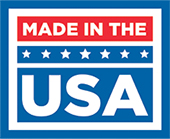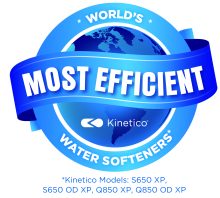Renting vs. Buying a Water Softener in Fort Wayne: Which Makes More Sense?
Hard water issues are common in Fort Wayne, due to which many homeowners experience problems such as dry skin, cloudy dishes, and scale buildup on faucets. High mineral content doesn’t just affect everyday comfort but also impacts pipes and household appliances, reducing their efficiency and lifespan. To tackle these problems, homeowners consider installing water softeners, but another question comes to mind: Is it better to rent a water softener or buy one? Let’s understand which of these options is the right choice for your home and budget.
Understanding Hard Water in Fort Wayne
Fort Wayne and the surrounding areas in northeast Indiana are known for their moderately hard water. As the mineral content of water in this region is high, it often affects the plumbing systems, water heaters, washing machines, dishwashers, and other water-using appliances. While it does not pose any serious health risks, it can shorten equipment lifespan, reduce energy efficiency, leave water marks on dishes, cause soap scum buildup in showers, and make skin feel dry.
Installing a water softener can help remove excess minerals from the water, keeping your fixtures cleaner, improving appliance lifespan, and providing comfortable water for bathing and daily use.
Renting a Water Softener
Renting a water softener is usually more appealing as it does not require any upfront investment. Instead of purchasing the equipment, you can pay a monthly fee and use the water softener. One major advantage of renting is the convenience that it offers; many rental agreements include installation, routine maintenance, repairs, and system replacements if needed. If any issues arise, you can call your provider to handle them, and you won’t have to worry about anything.
For individuals who are living in a place temporarily or aren’t sure how long they’ll be staying, renting is a great option that comes with minimal maintenance. However, it’s important to keep in mind that the monthly rental payments can add up in the long run, and you may end up paying more than you would have if you had purchased a water softener.
Buying a Water Softener
Buying a water softener requires a larger upfront investment, but you also get full ownership of the equipment. After installation, the softener is yours. Although you’ll have to handle regular maintenance such as adding salt and occasional servicing, modern water softeners are so advanced that they don’t require much maintenance.
You just need to make a one-time investment to enjoy the benefits of softened water for years. For homeowners who are going to stay in a property for a long time, buying is usually a smarter, more cost-effective decision than renting.
Which Option Makes More Sense?
The right choice for your home depends on your budget and situation. Renting would be a better option if you plan to move within a few years, don’t want to make an upfront investment, or want service coverage. Buying would be a better option if you plan to stay in your home for the long term, prefer one-time payment over ongoing monthly payments, and want the freedom to choose the exact system you want.
Get in touch with Rabb Water Systems today for the installation of a water softener in Fort Wayne FL. Our expert team will handle the process seamlessly so you can enjoy a consistent supply of quality water.








